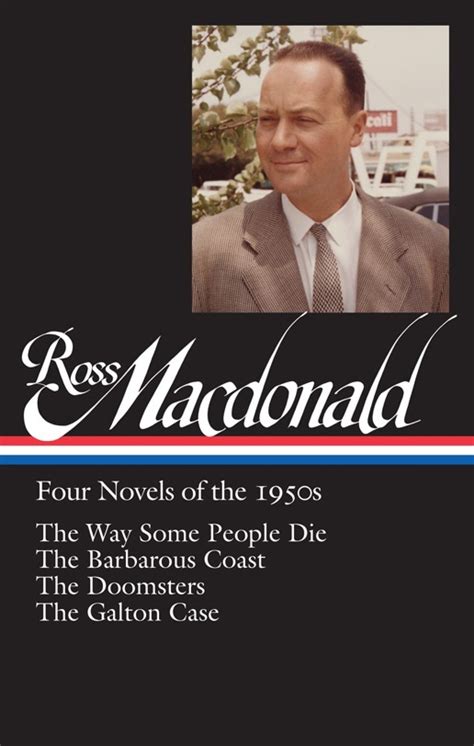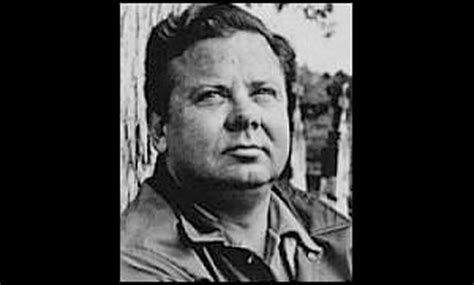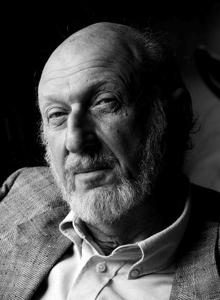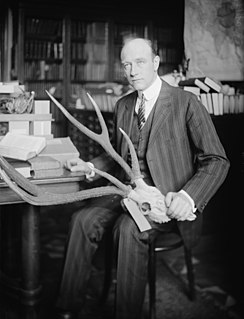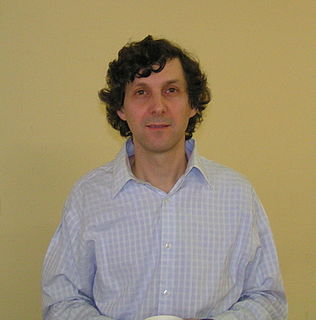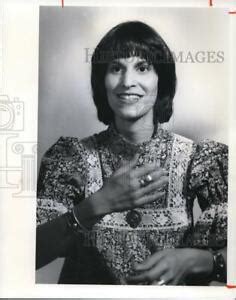Top 831 Fifteen Quotes & Sayings - Page 14
Explore popular Fifteen quotes.
Last updated on November 23, 2024.
Marriage should be about fun,” she says gently. “It’s about friendship, and laughter, and trust, and fun. If it’s not fun, if you take it all too seriously, what’s the point? You know I’ve been with Andy for fifteen years, and the reason it still works is because he’s my best friend and he still makes me laugh. Admittedly, not all the time, and often we get completely bogged down in work, and the kids, and life, but he’s still the person I most want to phone when anything happens in life, and he’s still the person who makes me laugh the most.
The smell of the sea, of kelp and fish and bitter moving water, rose stronger in my nostrils. It flooded my consciousness like an ancestral memory. The swells rose sluggishly and fell away, casting up dismal gleams between the boards of the pier. And the whole pier rose and fell in stiff and creaking mimicry, dancing its long slow dance of dissolution. I reached the end and saw no one, heard nothing but my footsteps and the creak of the beams, the slap of waves on the pilings. It was a fifteen-foot drop to the dim water. The nearest land ahead of me was Hawaii.
I walk around the school hallways and look at the people. I look at the teachers and wonder why they're here. If they like their jobs. Or us. And I wonder how smart they were when they were fifteen. Not in a mean way. In a curious way. It's like looking at all the students and wondering who's had their heart broken that day, and how they are able to cope with having three quizzes and a book report due on top of that. Or wondering who did the heart breaking. And wondering why.
APD is primarily defined as a lack of empathy,' I said. I'd looked it up too, a few months ago. Empathy is what allows people to interpret emotion, the same way ears interpret sounds; without it you become emotionally deaf. 'It means I don't connect emotionally with other people. I wondered if he was going to pick that one.' 'How do you even know that?' she said. 'You're fifteen years old, for goodness' sake. You should be ... I don't know, chasing girls or playing video games.' 'You're telling a sociopath to chase girls?
Since I was 18 years old, I have taught the Bible. For the last fifteen or twenty years, I have taught every Sunday when I was home or near my own house, so that would be 35 or 40 times per year. Half of those Sundays, the text comes from the Hebrew Bible. I have had a deep personal interest in the Holy Land and in the teachings of the Hebrew people. God has a special position for the Jewish people, the Hebrews, or whatever. I know the difference between ancient Israel and Judaea, and I know the history. I don't have any problem with the Jewish people.
When I started driving our old four-door green DeSoto, I always took Skip on my trips around town. I would get Skip to prop himself against the steering wheel, his black head peering out of the windshield, while I crouched out of sight under the dashboard. Slowing the car to ten or fifteen, I would guide the steering wheel with my right hand while Skip, with his paws, kept it steady. As we drove by the Blue Front Café, I could hear one of the men shout: "Look at that ol' dog drivin' a car!"
Writing is something that you don't know how to do. You sit down and it's something that happens, or it may not happen. So, how can you teach anybody how to write? It's beyond me, because you yourself don't even know if you're going to be able to. I'm always worried, well, you know, every time I go upstairs with my wine bottle. Sometimes I'll sit at that typewriter for fifteen minutes, you know. I don't go up there to write. The typewriter's up there. If it doesn't start moving, I say, well this could be the night that I hit the dust.
The growth of the American food industry will always bump up against this troublesome biological fact: Try as we might, each of us can only eat about fifteen hundred pounds of food a year. Unlike many other products - CDs, say, or shoes - there's a natural limit to how much food we each can consume without exploding. What this means for the food industry is that its natural rate of growth is somewhere around 1 percent per year - 1 percent being the annual growth rate of American population. The problem is that [the industry] won't tolerate such an anemic rate of growth.
Titled players appeared to be trotting out game after game in which the same old hoary opening sequences, memorized out to fifteen, twenty, or even more moves, were repeated endlessly. True novelties were becoming scarcer, and sometimes these 'opening' novelties didn't appear until well into the middlegame. (A master-level friend once proudly showed me a novelty he'd discovered at move twenty-seven of a very well-trodden chess opening, and it's said that even as far back as the 1950's Mikhail Botvinnik had some openings memorised past the thirtieth move).
We had an electronic head and arm for Threepio, and I manipulated the mechanism with a joystick. But it wasn't working. The propman said, 'Give me fifteen minutes.' We all went to get coffee, and when we came back, Threepio's head turned perfectly and his arm moved naturally. I looked up and realized that the prop man had a fishing pole with a fine nylon string attached to Threepio's arm. He had rigged another string around the head, which Chewbacca was holding. As Chewie moved his hands, Threepio's head turned!
The seasons, like greater tides, ebb and flow across the continents. Spring advances up the United States at the average rate of about fifteen miles a day. It ascends mountainsides at the rate of about a hundred feet a day. It sweeps ahead like a flood of water, racing down the long valleys, creeping up hillsides in a rising tide. Most of us, like the man who lives on the bank of a river and watches the stream flow by, see only one phase of the movement of spring. Each year the season advances toward us out of the south, sweeps around us, goes flooding away to the north.
I never liked jazz music because jazz music doesn't resolve. But I was outside the Bagdad Theater in Portland one night when I saw a man playing the saxophone. I stood there for fifteen minutes, and he never opened his eyes. After that I liked jazz music. Sometimes you have to watch somebody love something before you can love it yourself. It is as if they are showing you the way. I used to not like God because God didn't resolve. But that was before any of this happened.
I once heard a sober alcoholic say that drinking never made him happy, but it made him feel like he was going to be happy in about fifteen minutes. That was exactly it, and I couldn't understand why the happiness never came, couldn't see the flaw in my thinking, couldn't see that alcohol kept me trapped in a world of illusion, procrastination, paralysis. I lived always in the future, never in the present. Next time, next time! Next time I drank it would be different, next time it would make me feel good again.
Bad karma is the spiritual debt one has accumulated for one's mistakes from all previous lives and this life. It includes killing, harming, taking advantage, cheating, stealing, and more. On Mother Earth, when you buy a house, you take out a mortgage from a bank. This mortgage is your debt to the bank. You pay every month for fifteen, twenty, or thirty years to clear your financial debt. In the spiritual realm, if you have bad karma, you may have to pay for many lifetimes to clear your spiritual debt.
Fifteen years ago, God unequivocally and undeniably gave me Isaiah 22:22 as a life-verse. "Then I will set the key of the house of David on his shoulder, when he opens no one will shut, when he shuts no one will open." After 40 plus confirmations over a two-week period - yes, more than 40 - I became thoroughly convinced this verse was both a promise and a weapon for me. I have since used the verse hundreds of times throughout America - in all 50 states and in Washington DC - to open and close spiritual doors for the Lord.
The way I lived, I grew up in a time where people would take your shoes, they'll take your jacket, they'll take your cheese without a gun. So people would jump on you - this was like fourteen, fifteen years old. So it always taught me that you gotta have your crew, in some ways you gotta move, don't put your self in harm's way, and definitely if you're a street dude and want any kind off credibility, don't put yourself under the mercy of anybody else, or you'll be at their mercy; they can do what they want to do to you.
The sweetness of dogs (fifteen) What do you say, Percy? I am thinking of sitting out on the sand to watch the moon rise. Full tonight. So we go and the moon rises, so beautiful it makes me shudder, makes me think about time and space, makes me take measure of myself: one iota pondering heaven. Thus we sit, I thinking how grateful I am for the moon’s perfect beauty and also, oh! How rich it is to love the world. Percy, meanwhile, leans against me and gazes up into my face. As though I were his perfect moon.
My advice was to start a policy of making reversible decisions before anyone left the meeting or the office. In a startup, it doesn't matter if you're 100 percent right 100 percent of the time. What matters is having forward momentum and a tight fact-based data/metrics feedback loop to help you quickly recognize and reverse any incorrect decisions. That's why startups are agile. By the time a big company gets the committee to organize the subcommittee to pick a meeting date, your startup could have made 20 decisions, reversed five of them and implemented the fifteen that worked.
I really enjoy touring period! I had another band called Killing Machine, we went out on tour which was only fifteen shows & we went out in a really old motor home. That had to be the most fun. I didn't have to do radio at nine in the morning everyday. It was me & a bunch of friends. The singer was my tattoo artist. My girlfriend would fly in & we would sleep in a hammock above the bed the band were sleeping in [laughs]. I like that stuff that's really fun, I like the camping experience.
In the world's history certain inventions and discoveries occurred, of peculiar value, on account of their great efficiency in facilitating all other inventions and discoveries. Of these were the art of writing and of printing - the discovery of America, and the introduction of Patent-laws. The date of the first ... is unknown; but it certainly was as much as fifteen hundred years before the Christian era; the second-printing-came in 1436, or nearly three thousand years after the first. The others followed more rapidly - the discovery of America in 1492, and the first patent laws in 1624.
Once she'd loved my filet mignon, my carnivore inklings, but now she was a vegan princess, living off of beans. She'd given up the cheese and bacon, sworn off Burger King, and when I wouldn't do the same she gave me back my ring. I stood there by the romaine lettuce, feeling my heart pine. Wishing that this meatless beauty still would be all mine. She turned around to go to checkout, fifteen items or less. And I knew this was the last go-round, so this is what I said. ... "Don't you ever give me no rotten tomato, 'cause all I ever wanted was your sweet potato.
I met the pianist Barry Harris when I was about fifteen. He would show me changes, which I had no idea existed. I knew about scales, but I didn't think about chords. I was fortunate in that he lived right around the corner so I'd be at his house almost every day and he showed me about playing melodies over chords. After about three years, I could play some gigs. I worked with drummer Roy Brooks and other guys my age at that time, like trumpeter Lonnie Hillyer. Some of the older guys were Paul Chambers, Doug Watkins and Louis Hayes
In the [first] fifteen years [of field work] I can remember just ten times when I had really narrow escapes from death. Two were from drowning in typhoons, one was when our boat was charged by a wounded whale; once my wife and I were nearly eaten by wild dogs, once we were in great danger from fanatical lama priests; two were close calls when I fell over cliffs, once I was nearly caught by a huge python, and twice I might have been killed by bandits.
On a cold, fretful afternoon in early October, 1872, a hansom cab drew up outside the offices of Lockhart and Selby, Shipping Agents, in the financial heart of London, and a young girl got out and paid the driver. She was a person of sixteen or so--alone, and uncommonly pretty. She was slender and pale, and dressed in mourning, with a black bonnet under which she tucked back a straying twist of blond hair that the wind had teased loose. She had unusually dark brown eyes for one so fair. Her name was Sally Lockhart; and within fifteen minutes, she was going to kill a man.
I woke up as the sun was reddening; and that was the one distinct time in my life, the strangest moment of all, when I didn't know who I was - I was far away from home, haunted and tired with travel, in a cheap hotel room I'd never seen, hearing the hiss of steam outside, and the creak of the old wood of the hotel, and footsteps upstairs, and all the sad sounds, and I looked at the cracked high ceiling and really didn't know who I was for about fifteen strange seconds. I wasn't scared; I was just somebody else, some stranger, and my whole life was a haunted life, the life of a ghost.
There is still an assumption among many people that to be black is to be lower class. In the last fifteen to twenty years, perhaps even further back than that, there's also been an explosion of a very wealthy black class in the United States, but those people are often treated as special cases: they're athletes, entertainers. Jay-Z. Basketball players. The country metabolizes the fact these rich black people exist, but it seems only to reinforce the idea that every other black person is limping along in poverty.
You don't know when you're twenty-three. You don't know what it really means to crawl into someone else's life and stay there. You can't see all the ways you're going to get tangled, how you're going to bond skin to skin. How the idea of separating will feel in five years, in ten - in fifteen. When Georgie thought about divorce now, she imagined lying side by side with Neal on two operating tables while a team of doctors tried to unthread their vascular systems. She didn't know at twenty-three.
Anger is neither legitimate nor illegitimate, meaningful nor pointless. Anger simply is. To ask, "Is my anger legitimate?" is similar to asking, "Do I have the right to be thirsty? After all, I just had a glass of water fifteen minutes ago. Surely my thirst is not legitimate. And besides, what's the point of getting thirsty when I can't get anything to drink now, anyway?" Anger is something we feel. It exists for a reason and always deserves our respect and attention. We all have a right to everything we feel--and certainly our anger is no exception.
In America, we happen to be living in a third world country from the point of view of economic and social development. I came back from New York yesterday and I took the fastest train in the country, the Acela. My wife and I took the New York-Boston train sixty years ago - it wasn't called the Acela then - and I think it's improved by about fifteen minutes since then. Any other country in the world would be about half the time. In fact when it's riding along the Connecticut turnpike it's barely keeping up with traffic, which is just scandalous.
I don’t use an exposure meter. My personal advice is: Spend the money you would put into such an instrument for film. Buy yards of film, miles of it. Buy all the film you can get your hands on. And then experiment with it.That is the only way to be successful in photography. Test, try, experiment, feel your way along. It is the experience, not technique, which counts in camera work first of all. If you get the feel of photography, you can take fifteen pictures while one of your opponents is trying out his exposure meter.
Consider the oddity of those drug commercials on television. Fifteen seconds of the purported therapeutic effort, followed by about 45 seconds of a rapidly muttered list of horrific possible side effects. When the ad is over, I can't remember a thing about what the pill is supposed to do, except perhaps cause nausea, liver damage, projectile vomiting, a nasty rash, a four-hour erection, and sudden death. Sudden death is my favorite because there is something comical about it being a side effect. What exactly is the main effect in that case? Relief from abdominal bloating?
Without any extraordinary effort of genius, I have discovered that nature was the same three thousand years ago as at present; that men were but men then as well as now; that modes and customs vary often, but that human nature is always the same. And I can no more suppose, that men were better, braver, or wiser, fifteen hundred or three thousand years ago, than I can suppose that the animals or vegetables were better than they are now.
A formative influence on my undergraduate self was the response of a respected elder statesmen of the Oxford Zoology Department when an American visitor had just publicly disproved his favourite theory. The old man strode to the front of the lecture hall, shook the American warmly by the hand and declared in ringing, emotional tones: "My dear fellow, I wish to thank you. I have been wrong these fifteen years." And we clapped our hands red. Can you imagine a Government Minister being cheered in the House of Commons for a similar admission? "Resign, Resign" is a much more likely response!
Just because you’ve only been alive for fifteen years doesn’t mean you’re less anything except old. That’s all it means. It doesn’t mean you’re less experienced. It doesn’t mean you’re less intelligent. It doesn’t mean you’re less sensitive. It doesn’t mean you take things less seriously. It’s like, these are younger human beings, meaning don’t, because they’re only ten, start thinking that they don’t know what you’re talking about -because they do. Don’t leave people out in the cold, and don’t talk down to people -don’t. It never works out.
In the United States, the average is two children per family, while in Africa it is five children per family. On the surface, the statistic seems to indicate that Africans are having way too many kids and are taxing the Earth's resources, while American kids are born into families who are able to take care of them. However, the average American child consumes roughly the same resources as fifteen African children. So when an American family says they only have two children, they are actually consuming the resources of an African family of thirty children!
Our feelings probably are not less strong at fifty than they were ten or fifteen years before; but they have changed their objects, and dwell on far different prospects. At five-and-thirty a man thinks of what his own existence is; when the maturity of age has grown into its autumn, he is wrapt up in that of others. The loss of wife or child then becomes more deplorable, as being impossible to repair; for no fresh connection can give us back the companion of our earlier years, nor a "new-sprung race" compensate for that, whose career we hoped to see run.
We are shut up in school and college recitation rooms for ten to fifteen years, and come out at last with a bellyful of words and do not know a thing. We cannot use our hands, or our legs, or our eyes, or our arms. We do not know an edible root in the woods. We cannot tell our course by the stars, nor the hour of day by the sun. It is well if we can swim and skate. We are afraid of a horse or a cow, of a dog, of a cat, of a spider. Far better was the Roman rule to teach a boy nothing that he could not learn standing.
Being a nerd, which is to say going too far and caring too much about a subject, is the best way to make friends I know. For me, the spark that turns an acquaintance into a friend has usually been kindled by some shared enthusiasm . . . At fifteen, I couldn't say two words about the weather or how I was doing, but I could come up with a paragraph or two about the album Charlie Parker with Strings. In high school, I made the first real friends I ever had because one of them came up to me at lunch and started talking about the Cure.
At the end of the day, if I do a set at a festival and I only have an hour, which is kind of short for a DJ set, I know that I have to play at least six of my songs. Then the whole challenge is what do I weave around that. How do I stand out? Because at a festival there's probably fifteen songs every DJ's going to play every hour, for the whole day. That to me is more interesting, because I still feel like an outsider in this world.
And there are also languages that divide nouns into much more specific genders. The African language Supyire from Mali has five genders: humans, big things, small things, collectives, and liquids. Bantu languages such as Swahili have up to ten genders, and the Australian language Ngan’gityemerri is said to have fifteen different genders, which include, among others, masculine human, feminine human, canines, non-canine animals, vegetables, drinks, and two different genders for spears (depending on size and material).
The horse and mule live thirty years And never know of wine and beers. The goat and sheep at twenty die Without a taste of scotch or rye. The cow drinks water by the ton And at eighteen is mostly done. The dog at fifteen cashes in Without the aid of rum or gin. The modest, sober, bone-dry hen Lays eggs for noggs and dies at ten. But sinful, ginful, rum-soaked men Survive three-score years and ten. And some of us, though mighty few Stay pickled 'til we're ninety-two.
Now, for the moment, we are safe. The only kind of international violence that worries most people in the developed countries is terrorism: from imminent heart attack to a bad case of hangnail in fifteen years flat. We are very lucky people--but we need to use the time we have been granted wisely, because total war is only sleeping. All the major states are still organized for war, and all that is needed for the world to slide back into a nuclear confrontation is a twist of the kaleidoscope that shifts international relations into a new pattern of rival alliances.
Today age segregation has passed all sane limits. Not only are fifteen-year-olds isolated from seventy-year-olds but social groups divide those in high school from those in junior high, and those who are twenty from those who are twenty-five. There are middle-middle-age groups, late-middle-age groups, and old-age groups - as though people with five years between them could not possibly have anything in common.
As I've gotten older, I can look at myself more clearly and own the things that I'm good at and work on the things that I'm not. Like, I am not skinny. I know that if I were to lose a little weight I'd literally have more time in the morning because I know clothes would fit better. And now I can look at those things more practically. Instead of being like, "What does that say about me?," now I'm just like, "That would be great to sleep in an extra fifteen minutes because I wasn't trying on everything in my closet."
U.S. News Organizations observe the anniversary of September 11 with investigations about the nation's continuing vulnerability to terrorism. First, the New York Daily News reports that two of its reporters carried box cutters, razor kinves, and pepper spray on fourteen commerical flights without getting caught. Then ABC News reports that it smuggled fifteen pounds of uranium into New York City. Then Fox News reports that it flew Osama bin Laden to Washington, D.C., and videotaped him touring the White House.
When I was fifteen I wrote seven hundred pages of an incredibly bad novel - it's a very funny book I still like a lot. Then, when I was nineteen I wrote a couple hundred pages of another novel, which wasn't very good either. I was still determined to be a writer. And since I was a writer, and here I was twenty-nine years old and I wasn't a very good poet and I wasn't a very good novelist, I thought I would try writing a play, which seems to have worked out a little better.
An average English word is four letters and a half. By hard, honest labor I've dug all the large words out of my vocabulary and shaved it down till the average is three and a half... I never write metropolis for seven cents, because I can get the same money for city. I never write policeman, because I can get the same price for cop.... I never write valetudinarian at all, for not even hunger and wretchedness can humble me to the point where I will do a word like that for seven cents; I wouldn't do it for fifteen.
Those rosy memories we all share are actually memories from our favorite TV shows. We've confused our own childhoods with episodes of "Ozzie and Harriet," "Father Knows Best," and "The Brady Bunch." In real life, Ozzie had a very visible mistress for years, Bud and Kitten on "Father Knows Best" grew up to become major druggies, and Mom on "The Brady Bunch" dated her fifteen-year-old fictional son.
I fear that many of us rush about from day to day taking for granted the Holy Scriptures. We scramble to honor appointments with physicians, lawyers, and businessmen. Yet we think nothing of postponing interviews with Deity postponing scripture study. Little wonder we develop anemic souls and lose our direction in living. How much better it would be if we planned and held sacred fifteen or twenty minutes a day for reading the scriptures. Such interviews with Deity would help us recognize his voice and enable us to receive guidance in all of our affairs.
There were always men looking for jobs in America. There were always all these usable bodies. And I wanted to be a writer. Almost everybody was a writer. Not everybody thought they could be a dentist or an automobile mechanic but everybody knew they could be a writer. Of those fifty guys in the room, probably fifteen of them thought they were writers. Almost everybody used words and could write them down, i.e., almost everybody could be a writer. But most men, fortunately, aren't writers, or even cab drivers, and some men - many men - unfortunately aren't anything.
If the age of the Earth were a calendar year and today were a breath before midnight on New Year's Eve, we showed up a scant fifteen minutes ago, and all of recorded history has blinked by in the last sixty seconds. Luckily for us, our planet-mates--the fantastic meshwork of plants, animals, and microbes--have been patiently perfecting their wares since March, an incredible 3.8 billion years since the first bacteria. ...After 3.8 billion years of research and development, failures are fossils, and what surrounds us is the secret to survival.

